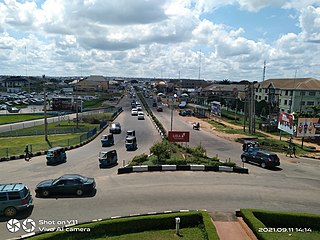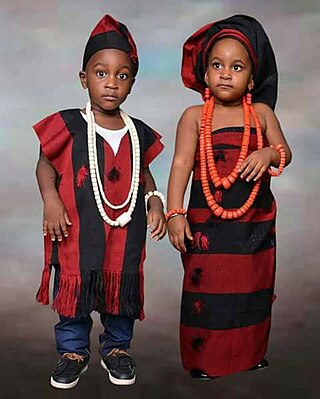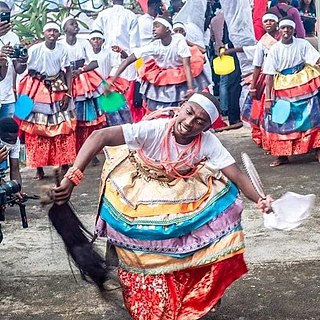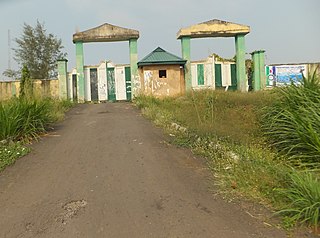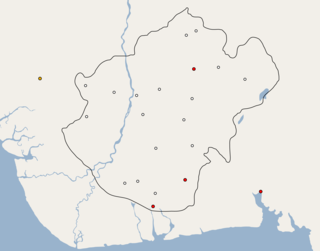Origins
The Illah people trace their origin to three different sources. The three sources of ethnic descent which the Illah people lay claim to include Igbo, Igala and Benin:
(i) The Igbo Descendants:Umuagwu, Umutei, Ajaji, Umutedem,Onya,
and Ogbe-Orji
(ii) The Igala Descendants: Ukpologwu,Ogbe-Olu
(iii) The Benin Descendants:Ukwumege
1. The Igbo Origin
(i) Umutei-Edem, Umutei, Ajaji and Umuagwu
These four quarters were the first to settle at Illah. They are assumed to be of Igbo extraction, even though according to oral tradition, it was their mother who was Igbo, while their father was of Igala origin.
A plausible version of the town's oral tradition claims that a man called Ifikuanim Eri, who was the second son of his father's children, had several children, among whom was Ika-Eri, who founded Omo-Ika-Iberi, (meaning ‘the market of a man called Ika of Eri’). The name Omo-Ika-Iberi metamorphosed into what became known as Itormorka, which the Illah people recognise today as the original land occupied by their ancestors, the first settlers in the town.
Eri had a son called Illah, who, in turn, begot five children from his two wives. The first wife begot Edem, Utei, and Nwabukwu (Ajaji), while his second wife had two children for him: Iyagbo and Agwu. These children eventually became the founders of the different villages which bear their names.
However, owing to the insecure nature of the river bank dwelling, where they were incessantly attacked by aggressors from across the River Niger on the eastern flank, the five brothers moved inland to a more secure place. On arrival at the place, they chased away the Ukala people who they met there, and named the place “Ala amaka”, which in Igbo means “This land is very good”. The name was subsequently shortened to Ala (meaning “this land”), a name that was ultimately corrupted by the white man to become IIlah, its present name.
(ii) Onyah Quarter
The Onyah people, who arrived in Illah much later, are said to have come into Illah from Osamele, a town in the Ogbaru Local Government Area, of the present day Anambra State. Led by Prince Ogwu, the heir apparent whose ascent to the throne was being frustrated by the father’s longevity, decided to found his own territory to rule. In this attempt, he clashed with Edaiken at Omorka. The two war lords, however, struck an agreement whereby Ogwu was allowed to settle at the Illah waterside (Otu-Eke) and rule over an autonomous community there. He was to cooperate with Illah in terms of providing security for Illah from that axis. The Igbo connection of this group is evident, given the fact that they migrated from their native Osamele, an Igbo town.
(iii) Ogbe-Orji
The people of descended from an Igbo man, by name Chika, who is believed to have founded the village. Chika was a brother-in-law to Ugbe, who was Chijulu’s first son. He married Chika’s sister and eventually decided to settle at Illah, where he was very welcome. According to oral tradition, Chika decided to plant an iroko tree (Orji tree) in the area allocated to him by the Illah people, as a signpost, to guide his relations from the East, whenever they came to visit him in his new abode.
2. The Benin Origin
The Ukwumege people of Illah lay claim to Benin descent. According to oral tradition, they are said to have descended from Edaiken, a Prince of the Ancient Benin kingdom. In the course of Edaiken's adventures from Benin towards the Eastern boundaries, he arrived at Illah, where the five co-founders of the town (Edem, Utei, Nwabukwu and Agwu), pleaded with him to assist them in overcoming, once and for all, their enemies from across the River Niger, in their eastern boundary, who had not stopped terrorising them ever since they settled on Illah soil. Edaiken, accepted the assignment, and having successfully executed the task of defending the Illah people against heir aggressors, was given an area of the town to settle, so that he could continue to defend the town. It is this quarter that became known as Ukwumege.
3. The Igala Origin
Two groups of settlers in Illah are of Igala descent. These are the Ukpologwu and the Ogbe-Olu people.
(i) Ukpologwu Quarter
The Ukpologwu people arrived in Illah before the Ogbe-Olu people. According to oral tradition, Ukpologwu was founded by Ogwu, the crown prince of Igalaland who was not allowed to succeed his father as the Attah of Igalaland, because he did not have a male child. Out of frustration, he went on self exile in Igalaland known as Ode-Ukpologwu. In a bid to further distance himself from the humiliation he was facing, he travelled down along the River Niger until he arrived at Omorka where he was received and accommodated by the four brothers who were the first to settle there. He thus settled there and founded the village known as Ukpologwu in Illah today.
(ii) Ogbe-Olu Quarter
Just like the Ukpologwu people, the Ogbe-Olu people trace their origin from Igalaland. They were, however led to Illah by an Igala prince called Akinjogula who is their progenitor.



